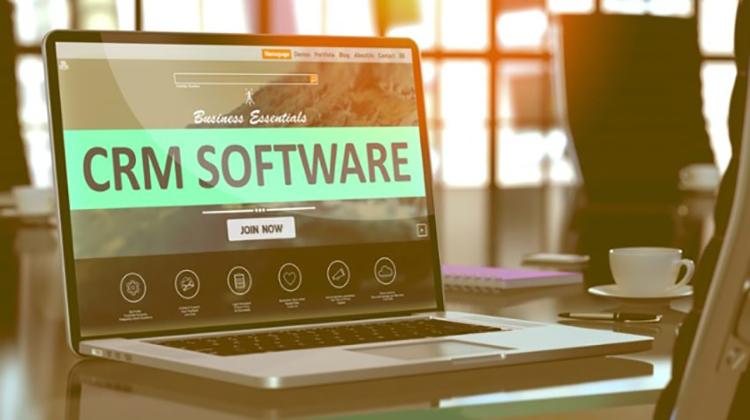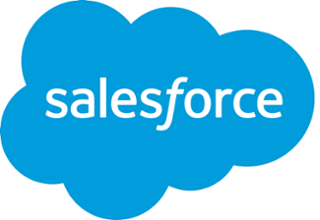Starting to use a CRM system for your hotel, bar, restaurant or venue, could be a decision that completely changes your business. A CRM system when correctly implemented, can help with business transparency, efficiency, organisation, custom retention and importantly, it can help you to close more sales.

Needless to say there are many CRM systems in the marketplace today, so in this blog post I’m going to give an overview of LeadDigital’s Top 5 recommended CRM systems of 2017.

Salesforce
“The World’s #1 CRM”
Founded in 1999 by Marc Benioff, Parker Harris, Dave Moellenhoff and Frank Dominguez, Salesforce is now the most used CRM Worldwide.
With around 4 million users and over 10,000 employees globally, Salesforce has the infrastructure to support hospitality businesses of any size. Salesforce is constantly being improved, with around $150m research & development budget per year. See our recent ‘Is SalesForce Right For You?’ article for more information.
Pros: Salesforce will support any company size. Their ‘AppExchange’ marketplace boasts thousands of add-on applications which cover a variety of different niches; everything from Event Management to Booking Engines and Surveys.
Cons: The basic versions can be very restrictive if you wish to do any customisation, such as to workflows or custom coding.
Cost: All versions are billed annually, per user. SalesforceIQ (small business CRM solution) starts at £20/user/month for the starter package, up to £240/user/month for unlimited with all features.

HubSpot CRM
“Grow and manage your pipeline for free”
HubSpot’s CRM solution is relatively new when compared to Salesforce, as the latest addition to HubSpot’s existing collection of inbound marketing services, which they’ve been developing since 2006!
By adding a CRM to the existing tools that HubSpot offers, users can capture the whole lifecycle of a lead, from the inbound marketing source, through into the CRM. Users can then track all results gathered, entirely within one system.
Pros: Free for up to 1 million contacts. Able to track the whole lifecycle of a lead from capture to completion, when using other HubSpot products, such as HubSpot Marketing.
Cons: Very limited when compared to a complete CRM, such as Salesforce or Zoho. Small list of third party applications, when compared to other platforms.
Cost: Free – however, you will need other modules such as HubSpot Marketing & Sales, which are at an additional cost.

Zoho CRM
“Get ready to sell Smarter, Better, Faster.”
Zoho CRM was one of the first products in the ‘Zoho Suite’, introduced in 2005. Since then Zoho has grown in size, with 25 million [1] users across its whole product range in 2017.
Zoho have recently introduced AI into their CRM, in the form of ‘Zia’. The AI is able to learn how each person uses the CRM, and can master data intelligence to interpret how your business works, analyse what you’re trying to achieve and predict unexpected incidents before they even happen!
Pros: Long list of integrations and excellent customer support. Very competitive pricing for an enterprise CRM, highly customisable Cloud-based platform.
Cons: Zoho CRM can be very complex to customise and the user interface is not quite as intuitive as other platforms.
Cost: When billed annually, the standard package is $10/user/month, Professional $20/user/month, Enterprise, $35/user/month and Ultimate is $100/user/month.

Microsoft Dynamics
“Drive your digital transformation with Dynamics 365”
Microsoft Dynamics is part of the Microsoft Business Solutions platform, which covers ERP and CRM. Microsoft Dynamics CRM can be run on-premise or online, via Microsoft Dynamics CRM Online.
Microsoft Dynamics focusses on the industries of retail, service, manufacturing, financial services, and the public sector, but it can be adapted to work in any industry including hospitality, and for any size of company.
Microsoft Dynamics is a modular system, which means it’s possible to only use the modules required, which can make it very cost effective.
Pros: Microsoft Dynamics has the potential to be the only system you need, as it can be configured to cover CRM and ERP. Very configurable, with lots of integrations available. A ‘light’ version is offered for smaller teams.
Cons: The pricing structure is quite complicated, with lots of options on modules.
Cost: The most popular plan, is £86.70/user/month. Light edition starts at £7.50/user/month.

Pipedrive
“Pipedrive gets your sales organised”
Pipedrive was founded in 2010 and has around 240 employees Worldwide. As of 2017, Pipedrive has around 50,000 customers [2] all around the world, with a focus on small to medium size businesses.
Pipedrive was built by sales people, for sales people, and aims to simplify the sales process and provide an intuitive user interface to do so.
Pros: Pipedrives ‘Pipeline’ view is perfect to see all the current opportunity deals and their progress. The intuitive user interface is great and simple to use.
Cons: As Pipedrive is aimed at small companies, it can be overly simple. The list of integrations is short compared to other platforms.
Cost: Pipedrive offer annual and monthly costs. When billed annually, the Silver package is $10/user/month, Gold $21/user/month and Platinum, $63/user/month.
In Summary
There is a huge range of CRM systems to choose from in 2017 and this list only scratches the surface, with other services like ‘Insightly’, ‘Nutshell’, ‘Freshsales’, ‘Freshdesk’ etc… equally deserving of mention.
So how do you choose? Think about these questions; what problems can a CRM system solve and what issues can it improve?
The right software is vital, but so is installing it for the right reasons. Moving to a CRM system will take time, so thought needs to be put into the process.
At this point you should talk to us at LeadDigital. We have over 20 years experience in Martech and have successfully implemented CRM systems for various UK hospitality businesses, which have proved vital and in turn have increased revenues!
Need Help Choosing Your CRM?
References
[1] https://www.zoho.com/aboutus.html
[2] https://blog.pipedrive.com/2017/03/50000-customers-taught-us-sales/



